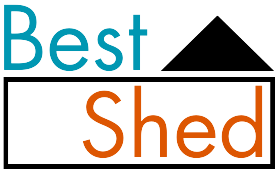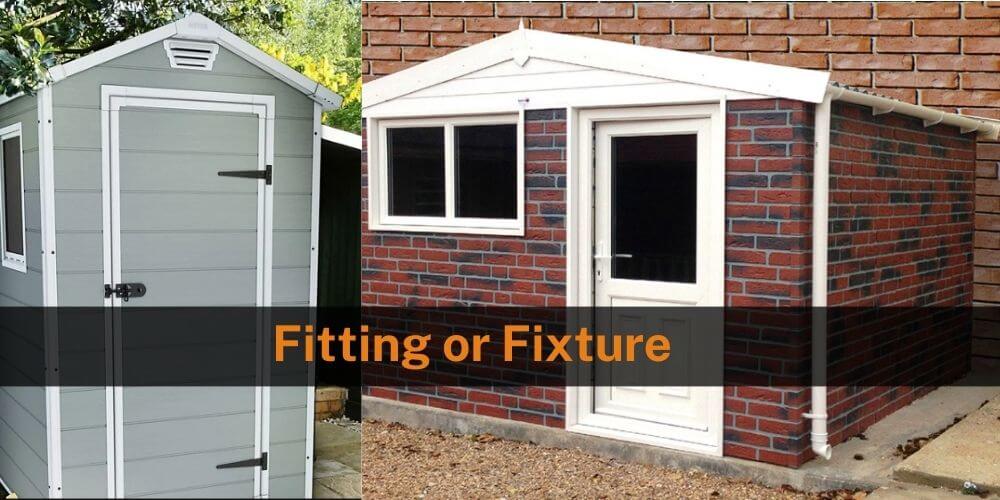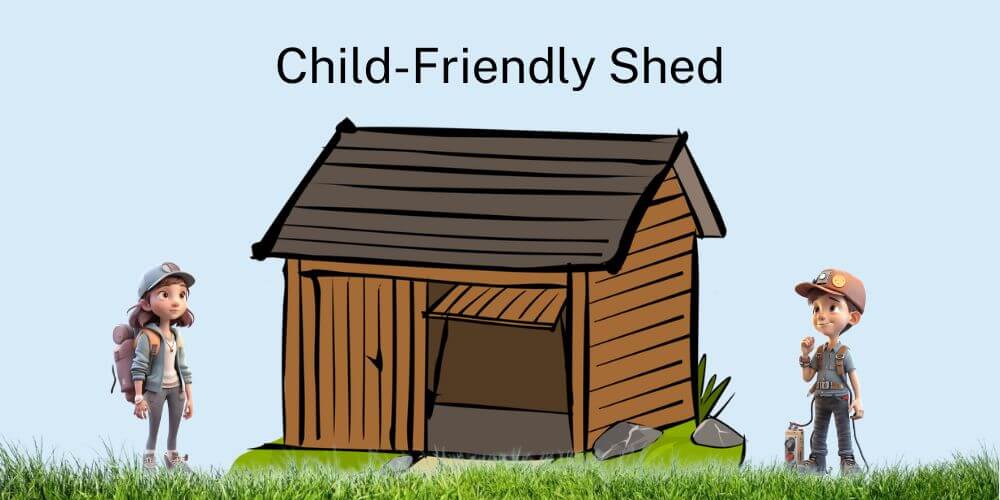Are you buying, maybe selling a house? Something that you need to know about sheds in property sales is whether a shed is considered a fixture or a fitting. I recall the days when my partner and I embarked on a journey to explore potential properties. During those viewings, real estate agents would often mention the sale conditions pertaining to fixtures and fittings.
We didn’t pay much attention to the finer details back then, our primary focus was finding the “perfect” property. However, our perspective shifted when our offer was accepted by the seller. Days later, I was wondering: Would the shed be considered part of the house, or would it be taken away?
Are sheds in property sales considered a fixture or a fitting?
Whether a shed in property sales is considered a fixture or fitting can depend on various factors, such as how it is attached to the property and the intentions of the parties involved (the buyer and seller) as stipulated in the sale contract.
Shed as a Fixture:
If the shed is securely attached to the ground or the property in a way that makes it a permanent part of the real estate, it may be considered a fixture. This means the shed is typically included in the sale of the property unless otherwise specified in the contract. Fixtures are items that are affixed to the property and are expected to stay with it when it’s sold.
Shed as a Fitting:
If the shed is not securely attached to the property and can be easily removed without causing damage or significant alteration to the property, it may be considered a fitting. Fittings are movable and may be excluded from the property sale unless specifically included in the contract.
- Portable Sheds: Sheds that are not permanently affixed to the ground or the property can be seen as fittings. If a shed can be easily moved without causing damage to the land or property, it’s more likely to be considered a fitting.
- Small, Temporary Sheds: Smaller sheds that are not intended for long-term use and can be disassembled and moved easily may be considered fittings.
- Garden Sheds: Sheds used primarily for gardening purposes, such as storing tools and equipment, and are not integrated into the property’s structure, are often considered fittings.
- Non-Permanent Foundations: Sheds with non-permanent foundations like blocks or skids are more likely to be seen as fittings.
- Personal Property: If the shed is specified in the sale contract as personal property and not part of the real estate, it will be considered a fitting.
Does a shed add value to your property?
Final Thoughts
It’s important to clarify the status of the shed in the sale contract to avoid any misunderstandings or disputes. Typically, the contract will specify which items are included in the sale, whether they are fixtures, fittings, or excluded altogether. If you have any doubts, it’s advisable to consult with a legal professional or a real estate agent to ensure that the terms are clear and agreeable to both parties.
Understanding the status of sheds in property sales is essential, it can prevent unexpected expenses or issues that might arise later on in the buying process.
If you’re a seller with the intention of taking your beloved shed with you, it is advisable to clearly communicate to your real estate agent that the shed will not be included in the sale.



